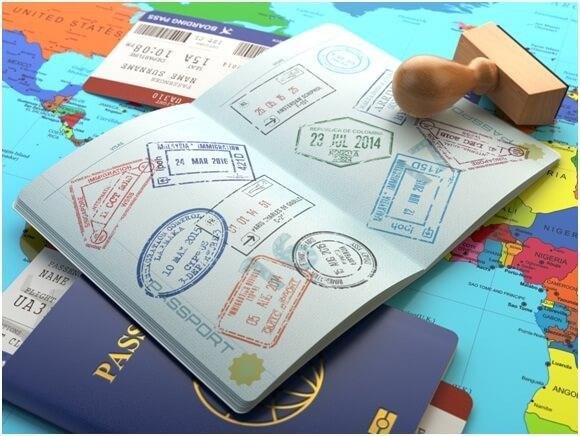The United States Ambassador to Nigeria, Richard Mills, and Nigeria’s Minister of Information and National Orientation, Idris Mohammed, have jointly urged Nigerians to strictly comply with US visa regulations following recent changes to visa policies affecting the country.
Speaking at a press briefing in Abuja on Friday, Ambassador Mills explained that the US Mission’s decision to revise Nigeria’s visa reciprocity schedule, reducing the validity of certain non-immigrant visas, including B1/B2 (business/tourism), F (student), and J (exchange visitor) categories, to three months with single-entry access, was not punitive.
Instead, he said, the move was part of a global review aimed at strengthening security, enhancing service delivery, and ensuring compliance with US immigration laws.
“The United States values its strong relationship with Nigeria and the many connections between our countries. US visas play a vital role in maintaining and strengthening these ties, but visitors must respect visa regulations,” Mills said.
The envoy warned that misuse of visas, such as overstaying or submitting false information, undermines trust and could lead to deportation or even a lifetime travel ban.
“If you overstay, it can result in deportation and a lifetime ban on future travel to the US, which we don’t want to see Nigerian citizens face,” he added.
Mills also noted that student visa holders risk losing their visas if they abandon their studies without notifying their institutions.
Read also:
- Customs advises Nigerian travelers to use United States visas responsibly
- African Union urges United States to rethink new travel ban on Africans
- United States strengthens Nigeria’s counter-nuclear smuggling capacity
The changes, he said, stem from the US government’s increased security checks, including the need for better access to Nigerian criminal records to verify applicants’ identities.
“We needed to address security vulnerabilities in our visa processing. The Nigerian government is working with us to develop a mechanism that ensures we know who is applying,” Mills said.
He urged Nigerians to consult the US embassy website for accurate and up-to-date visa information.
Minister Idris Mohammed commended the US embassy for directly engaging with Nigerians on the policy changes, describing the move as an opportunity for transparency and public education.
“Nigerians are global travellers, and because we travel a lot, it’s necessary to have information shared with us regularly as it affects our movements,” he said.
Mohammed dismissed concerns that the new visa measures were discriminatory, reiterating the ambassador’s assurance that the policy aims to improve service delivery, not penalise Nigerian travellers.
He also called on Nigerians to uphold the country’s image abroad by obeying the laws of host nations.
“When someone comes into Nigeria, we expect them to comply with our laws. Nigerians must also show the same respect abroad,” he said.
The minister added that the renewed engagement with the US Mission aligns with President Bola Tinubu’s New Hope Agenda, which seeks to strengthen international partnerships that benefit Nigerians at home and abroad.
“The more we engage, the better it is for both nations,” he said






